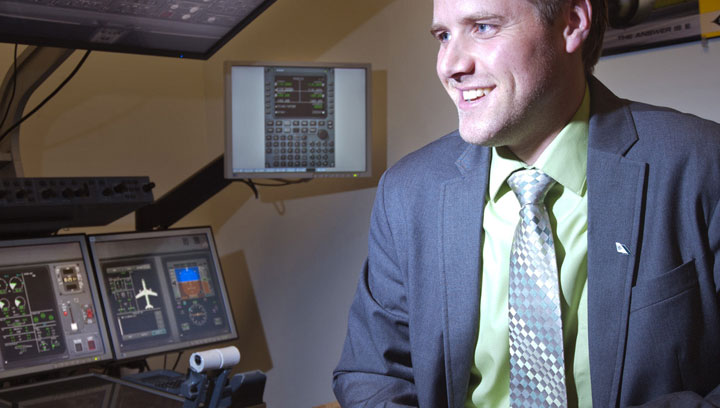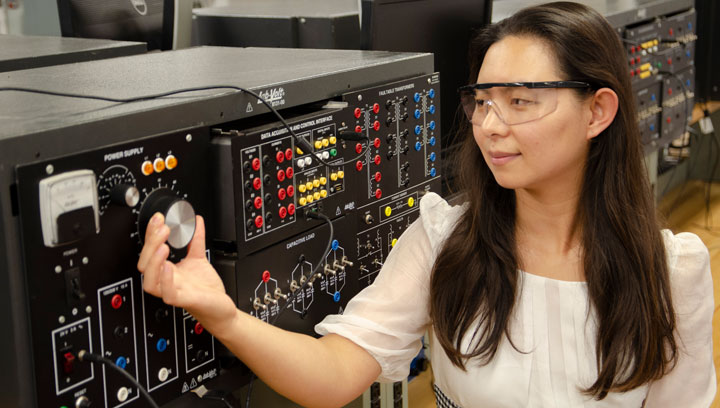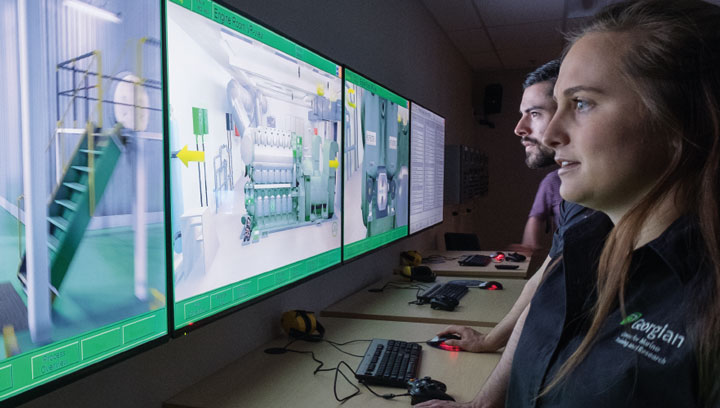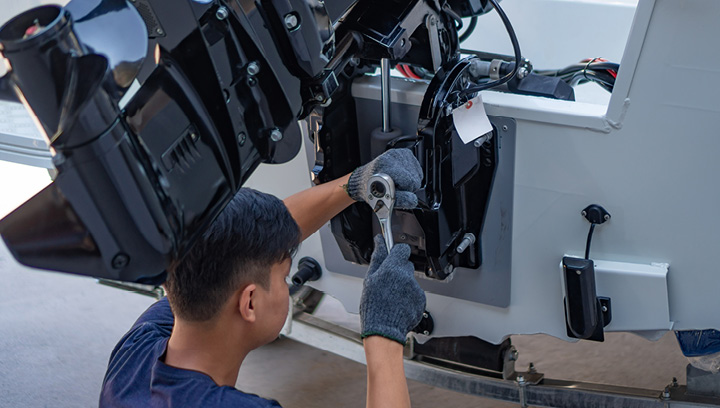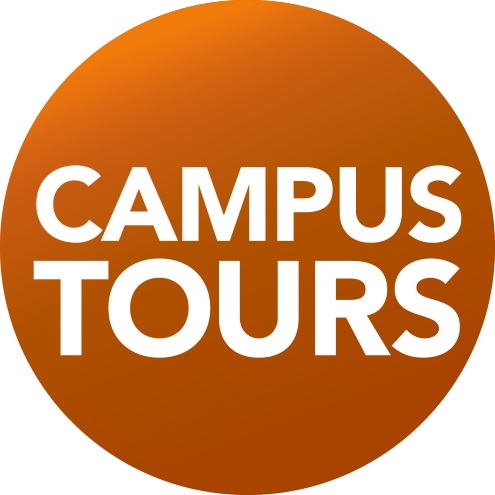
Become a navigation officer aboard marine vessels
Marine Technology ã Navigation Ontario College Advanced Diploma, Co-op program
Become a leader in the marine industry! Internationally recognized. Outstanding facilities. Work in Canada or anywhere in the world.
Program information
Program description
This program has been planned in co-operation with Transport Canada Marine Safety and Security (TCMSS) and Canadaãs shipping companies. You acquire a complete education which will prepare you for the occupation of shipãs Navigation Officer. Skills include navigating merchant ships, assisting in cargo operations, and ensuring safety of life at sea and protection of the marine environment. The specialized competencies and work experience also provide you with the skills and knowledge necessary for employment in government and in other marine-related industries.
Intake information
| Start date | Campus |
|---|---|
| Fall 2025 | Owen Sound |
Tuition and fees
- Visit ourô tuition and fees pageô for detailed information on the cost to attend ëûæÆüàèº.
- Review additional program-specific fees for this program.
- You can afford this! Exploreô OSAPô as well asô awards, scholarships and bursariesô to help you pay your way to graduation.
Work-integrated learning
- This program includes a co-op work term component where youãll gain experience in a workplace related to your fiôÙeld of study.
- Learn about types of work-integrated learning at ëûæÆüàèº.
What are the admission requirements for the Marine Technology ã Navigation program?
Marine Technology ã Navigation admission requirements
- Ontario Secondary School Diploma (OSSD) or equivalent, or mature student status
- Grade 12 English (C or U)
- Any* Grade 12 Mathematics (C, M, or U)
* A minimum grade of 70% in Grade 12 MAP4C, Foundations for College Mathematics, is required.
Note: Applicants must provide a valid Transport Canada Marine Medical stating ãfit forô sea serviceã or ãfit for sea service with limitationsã prior to program start. In the case of an applicant with aô certificate ãfit for sea service with limitationsã, the application will be reviewed. Failure to provide the certificate by the deadline mayô result in an offer of admission being revoked and withdrawal from courses.
You can find more information on how to obtain a Marine Medical Certificateô .ô Please note: once you have applied to the program, admissions will follow up with instructions on how to submit your Marine Medical documentation.
Mature students, non-secondary school applicants (19 years or older), and home schoolô applicants may also be considered for admission. Eligibility may be met by applicantsô who have taken equivalent courses, upgrading, completed their GED, and equivalency testing. For complete details refer to: www.georgiancollege.ca/admissions/academic-regulations/
Pathways
Applicants who have taken courses from a recognized and accredited post-secondaryô institution and/or have relevant life/learning experience may also be considered forô admission; refer to the Credit for Prior Learning website for details:
www.georgiancollege.ca/admissions/credit-transfer/
Additional information
Co-operative Work Term Requirementsô
This is a fully integrated co-operative education program, wherein the cadet will participate in semesters of academic study at the Owen Sound Campus interspersed with coop work terms on board ships. Hence, undergraduates are involved in work activities directly related to their educational objectives. TCMSS requires twelve months of Co-op sea service.
Marine Emergency Duties training, which is required before a cadet may proceed to the shipboard work term and for certification as an officer, will be scheduled for students at an extra charge.
The Co-op Education and Career Success department at ëûæÆüàèº facilitates co-op work terms for cadets. It is the Cadets responsibility to participate in the job search process which includes attending co-op classes, shipping company presentations, and interviews. Cadets must participate in resume and cover letter writing, mock interviews, and maintain a good academic record to qualify for a co-op placement.
International students are encouraged to investigate Co-op opportunities prior to commencing studies. Cadets may be subjected to adverse environmental conditions while on board ship (noise, dirt, dust, confined quarters and heavy lifting). Anyone with known allergies should consult with the Co-op department.
International applicants must sign a letter to acknowledge that Transport Canada does not issue Marine Certificates of Competency (Marine License) to non-Canadians.
Eligibility to enter the U.S.
Although not an admission requirement, all shipping companies, whether Canadian or foreign, which have vessels trading in U.S. ports require that all their shipboard personnel be eligible to legally enter the U.S.
What career paths can I take in marine technology and navigation?
Your Marine Technology ã Navigation diploma gives you many career opportunities
Graduates of this program may find rewarding careers as shipãs officers on board commercial vessels throughout Canada and the world. This three year co-operative cadet training program may lead to pathways for career advancement to senior ranks on board ship and to positions of leadership in the marine industry. Graduates are eligible to write examinations for the Transport Canada Watchkeeping Mate Certificate of Competency and can gain employment in domestic and international shipping industries.
Accreditation
Co-operative Education and Work-Integrated Learning Canada (CEWIL Canada)
This program is accredited by , formerly Canadian Association for Co-operative Education (CAFCE),
This accreditation represents the highest standard of achievement for co-operative education programs in Canada, and recognizes ëûæÆüàèºãs commitment to quality in co-op education.

Why study Marine Technology ã Navigation at ëûæÆüàèº?
Our grads get great jobs
Our graduates find rewarding careers at all levels of the marine industry. A worldwide shortage of qualified engineering and navigational officers means that, once certified, grads are immediately entering the workforce. Entry level salaries can reach $100,000.
State-of-the-art facilities
The Centre for Marine Training and Research is Canadaãs most advanced marine simulation and research centre. Located in beautifulô Owen Sound, Ontario,ô the facility recently underwent an extensive $8-million renovation to enhance hands-on training for students.
Industry support
This program was developed in co-operation withô Transport Canadaä»ý¿ýå£Íä»national shipping companiesô and relationships with those partner organizations remain strong. Marine companies support this program by providing a variety of inland and coastal placements for cadet work terms, which can lead toô employment upon graduation.
Hands-on experience
Students learn through a progressive mix of skills training, shipboard training and academic studies, including navigation training in our marine simulators. The program involves six academic semesters accompanied by two mandatory co-op terms. Navigation cadets (students) get a total ofô 365 days of sea timeô over those work terms.
What courses are included in the Marine Technology ã Navigation diploma program?
Course overview
40 Program Courses
2 Communications Courses
3 Co-op Work Terms
Program-specific courses
Semester 1 courses are listed below. For a full list of courses in the program including course descriptions, view the
- MARE 1054 ã Practical Seamanship
- MARE 1055 ã Radar Navigation
- MARE 1056 ã Chartwork 1
- MARE 1057 ã Seamanship
- MATH 1049 ã Introduction to Marine Technology Navigation Mathematics
- METE 1001 ã Meteorology 1
- PHYS 1009 ã Physics
Your course delivery method(s)
In person
This program is delivered fully in person and requires you to attend campus.
Please note, delivery methods are based on planning for the upcoming semester and are subject to change.
Check out our other related programs
Aviation Management
Gain the knowledge and experience you need for an exciting career in aviation. Reach higher with a masterãs degree in only 18 more months!
Electrical Engineering Technology
Advance your career possibilities. Benefit from our partnerships within the electricity industry. Be eligible for certification on graduation.
Marine Engineering Technology
Internationally recognized. Outstanding simulation facilities. Grads are in high demand. Work in Canada or anywhere in the world!
Mechanical Techniques ã Marine Engine Mechanic
Turn your love of boats into a great career! Lots of hands-on time. Latest equipment. Excellent career prospects.
Do you have questions about Marine Technology ã Navigation? Contact us!
Thinking about applying to ëûæÆüàèº?
Contact our student recruitment team to explore your study options.
Already applied to ëûæÆüàèº?
Connect with the Office of the Registrar for admissions-related questions.
Are you an international student?
Contact our international recruitment team to learn more about studying at ëûæÆüàèº.ô
Ways to connect
Take a guided, in-person tour
of our campuses.
Book a campus tour.
Book a phone appointment
with a recruitment specialist.
Connect with a recruiter.
Join our email list for event updates, contest information and more.
Sign up for ëûæÆüàèº updates.

